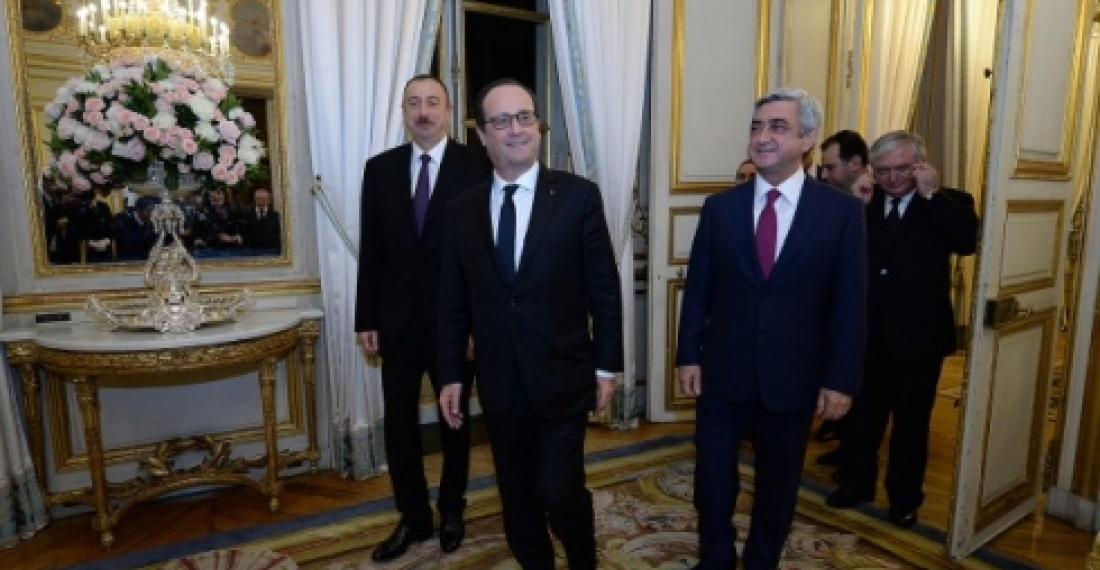President Francois Hollande of France on Monday hosted a series of meetings at the Elysee Palace with the hope of unblocking the impasse in the negotiations for the resolution of the Nagorno Karabakh conflıct. There were bilateral meetings between Hollande and his two main guests - Armenian President Serzh Sarrgsyan and Azerbaijani President Ilham Aliev. Aliev and Sargsyan also met separately and the three Presidents also had a trilateral meeting. There was then an expanded meeting between the two Presidents and their officials and the co-chair of the OSCE Minsk Process who are mandated to facilitate a solution to the conflict.
Although details of the meetings remain sparce all the sides have welcomed it as a positive development. However the Armenian and Azerbaijani positions remain too rigid and too far apart for progress to be expected quıckly. Part of the problem that the Paris meetings have tried to deal with is finding the right fit for a process to move the negotiations forward. Who sits around the table and how, and to discuss what, remains an issue, and despite all the ingenuity of French diplomacy one that is not yet fully resolved. The sides must now however go down to substance. The extent to which Paris has been able to achieve this objective will become clear in the next weeks and months. At that point the world will judge if this has been a ground breaking meeting, or a worthwhile and well intentioned initiative with only cosmetic results.
spurce: commonspace.eu
phto: President Hollande of France with President Sargsyan of Armenia and President Aliev of Azerbaijan at the Elysee Palace on Monday, 27 October 2014.







